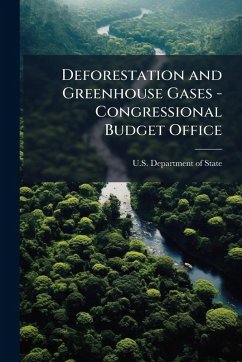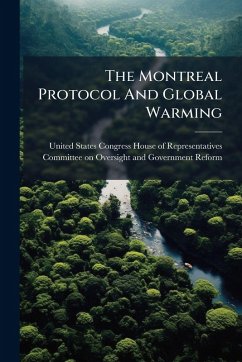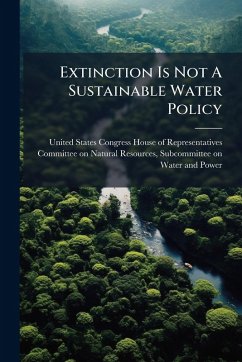
Two Degrees of Separation

PAYBACK Punkte
8 °P sammeln!
Scientific evidence indicates recent global climate trends which if remain unchanged or develop further could result in abrupt climate change. Abrupt climate change could result in serious environmental and social impacts. The most serious environmental impact would be the disruption of the natural processes which sustain, feed, and fuel people and nations. The disruption of these natural ecosystem processes could result in the scarcity and/or inaccessibility of vital natural resources like water, food, and energy supplies. Scarcity and/or inaccessibility of vital natural resources could creat...
Scientific evidence indicates recent global climate trends which if remain unchanged or develop further could result in abrupt climate change. Abrupt climate change could result in serious environmental and social impacts. The most serious environmental impact would be the disruption of the natural processes which sustain, feed, and fuel people and nations. The disruption of these natural ecosystem processes could result in the scarcity and/or inaccessibility of vital natural resources like water, food, and energy supplies. Scarcity and/or inaccessibility of vital natural resources could create social and political turmoil and adversely impact regional stability and homeland security. As the US is the largest historical producer of carbon dioxide, the most prevalent of the greenhouse gases, it should reform and adopt policies to adapt to the effects and/or mitigate the onset of abrupt climate change. Failure to take action will leave the US vulnerable to the environmental, social, and political impacts of abrupt climate change and threaten national security and vital US interests. This work has been selected by scholars as being culturally important, and is part of the knowledge base of civilization as we know it. This work was reproduced from the original artifact, and remains as true to the original work as possible. Therefore, you will see the original copyright references, library stamps (as most of these works have been housed in our most important libraries around the world), and other notations in the work. This work is in the public domain in the United States of America, and possibly other nations. Within the United States, you may freely copy and distribute this work, as no entity (individual or corporate) has a copyright on the body of the work. As a reproduction of a historical artifact, this work may contain missing or blurred pages, poor pictures, errant marks, etc. Scholars believe, and we concur, that this work is important enough to be preserved, reproduced, and made generally available to the public. We appreciate your support of the preservation process, and thank you for being an important part of keeping this knowledge alive and relevant.












